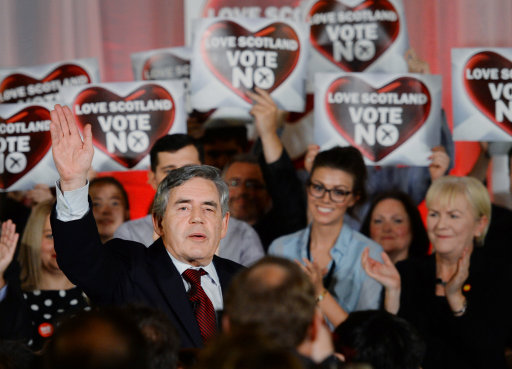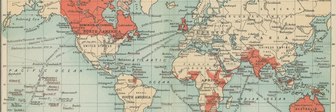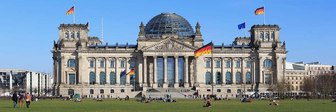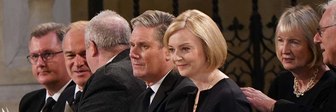The past week has seen the political equivalent of trench war: massive bombardments by both sides, but ending up with neither having gained any territory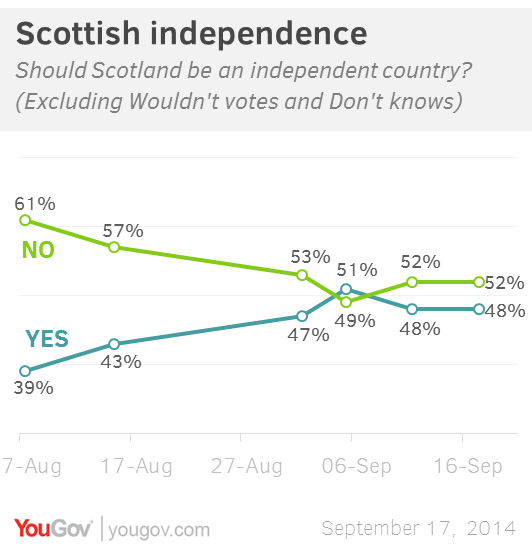
YouGov’s election-eve poll has No four points ahead, the same as our last survey. Those undecideds who have made up their minds in the past few days have divided evenly between Yes and No.
However, if victory were determined by enthusiasm rather than voting numbers, Yes would romp to victory. Almost half of all Yes supporters – 47 per cent – say they have displayed a poster or worn a sticker or badge to display their allegiance. Only 20 per cent of No supporters have done so.
YouGov’s sample for this final survey is the largest of any referendum poll. We questioned 3,237 electors who had previously given us their views between August 12 and September 10 – the period of the great Yes surge. We used the same method that produced the most accurate poll of the outcome of the European Parliament election four months ago.
If only men were voting, Scotland would choose independence by 54-46 per cent. Among women, No holds a clear 57-43 per cent lead.
People who voted Labour in the 2011 Holyrood elections are dividing Yes 30 per cent, No 70 per cent. This was the group that switched sides in large numbers during the Yes surge, from 18 per cent Yes in early August to 35 per cent Yes two weeks ago. Some of them have returned to the No camp following the interventions in the past ten days of Gordon Brown, and a number of banks and retailers warning of the economic risks of independence,
Equally, if the franchise were restricted to people who were born in Scotland and still living there, then Yes might win. Our final poll has a statistical tie, 50-50, with 1,271 saying they would vote Yes, and 1,258 saying No. What tips the result against independence are the one-in-six voters born outside Scotland: they divide 78-22 per cent for staying in the UK.
Of course, any poll is subject to a margin of error. So could Scotland end up voting narrowly for independence after all?
There are three reasons why the polls might be wrong.
First, there are voters who refuse to tell pollsters their intentions. If they tilt heavily towards one side, then we might understate its support.
Second, given the likely high turnout, we are seeking to measure the views of people who didn’t vote in the 2011 elections. We reckon that they divide 57-43 per cent against independence. Other polling companies have similar figures. We may all be wrong.
Third, some voters will have gone to bed last night intending to vote one way, and wake up this morning changing their mind – or even switch sides in the polling booth as they hold their pencil and decide finally what to do.
The early hours of tomorrow morning will be as tense, if somewhat less momentous, for pollsters as for Scotland’s rival campaigns.
Image: PA
